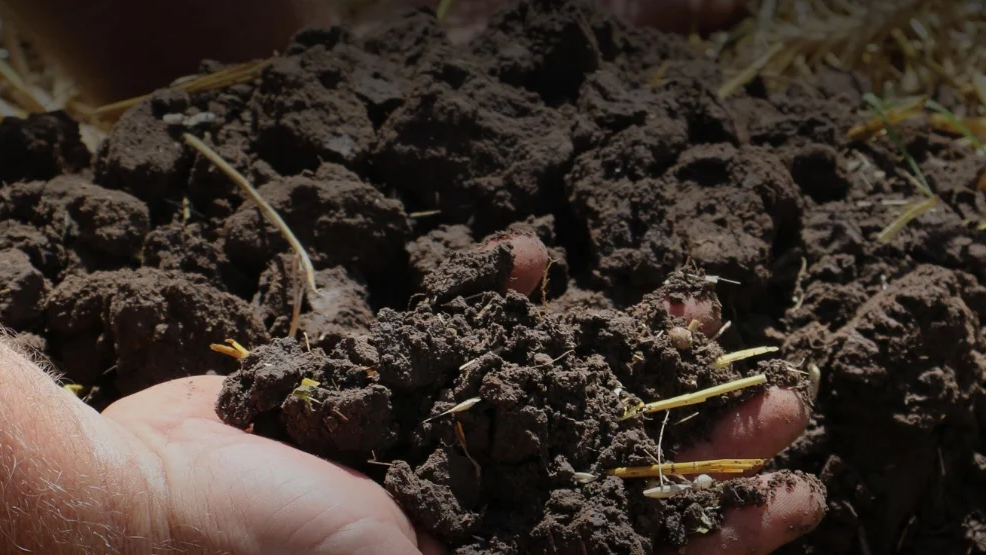What is soil heath?
Soil health refers to the overall well-being and quality of the soil. Just like our bodies need to be healthy to function, soil health is essential for the growth and productivity of plants.
Think of soil as a living ecosystem. Made up of tiny particles of rocks, minerals, water, air, organic matter (like dead plants and animals), and a community of microorganisms such as bacteria, fungi, and insects. All these components work together to create a balanced and fertile environment for plants to grow.
When we talk about soil health, we’re looking at different aspects. One important aspect is soil fertility. Fertile soil contains the right balance of nutrients that plants need to thrive, such as nitrogen, phosphorus, and potassium. These nutrients are like food for plants, and healthy soil provides them in appropriate amounts.
Another crucial factor is soil structure. Good soil structure means that the soil particles are arranged in a way that allows water to penetrate easily, while also holding some moisture for the plants’ roots. It also allows air to circulate, which is necessary for the roots and the microorganisms living in the soil to breathe.
Soil health also depends on the presence of beneficial microorganisms. These tiny organisms break down organic matter, recycle nutrients, and protect plants from harmful pathogens. They are like the soil’s own support system, helping plants grow strong and resilient.
Finally, soil health is affected by how well it can retain and filter water. Healthy soil acts like a sponge, absorbing rainfall and preventing runoff, which can cause erosion and carry away valuable topsoil. This water-holding capacity is crucial, especially during dry periods, as it helps plants survive and reduces the need for excessive watering.
Importance of maintaining good soil health
Farmers, horticulturalists, viticulturists and land managers are all interested in maintaining or improving soil health because it leads to better yields, healthier plants, and more sustainable practices. By taking care of the soil and ensuring its health, we can support the growth of plants, maintain biodiversity, and contribute to a healthier environment overall.
Soil health is of utmost importance for several reasons:
- Nutrient Availability: Healthy soil provides the essential nutrients that plants need to grow and thrive. When soil is rich in nutrients, crops can absorb them efficiently, leading to better yields and healthier plants. Maintaining soil health ensures a continuous supply of nutrients for crops, reducing the need for excessive fertiliser application and minimizing nutrient runoff, which can harm water bodies.
- Water Retention and Drainage: Healthy soil has good water-holding capacity, allowing it to retain moisture for plant roots. This is crucial, especially during dry periods, as it helps plants withstand drought stress. Additionally, healthy soil also has good drainage properties, preventing waterlogging and allowing excess water to flow away. Proper water management through soil health practices supports optimal plant growth.
- Disease and Pest Resistance: Healthy soil promotes strong and resilient plants. Beneficial microorganisms present in healthy soil can help suppress harmful pathogens that cause plant diseases. These microorganisms can also interact with plant roots, forming symbiotic relationships and enhancing the plant’s natural defences. Furthermore, healthy soil can support a diverse ecosystem of organisms that prey on pests, reducing the need for chemical interventions.
- Erosion Prevention: Soil erosion, where topsoil is carried away by wind or water, is a significant issue in agriculture. Healthy soil with good structure and organic matter content is more resistant to erosion. It forms a protective layer that prevents soil particles from being washed or blown away. By preserving soil health, farmers can reduce erosion, maintain fertile topsoil, and preserve valuable agricultural land for long-term productivity.
- Sustainable Practices: Maintaining soil health is a fundamental aspect of sustainable agriculture. It reduces the reliance on synthetic inputs like fertilizers and pesticides, which can have negative environmental impacts. Healthy soil promotes natural processes like nutrient cycling, reduces soil degradation, and contributes to long-term soil fertility. Sustainable soil management practices, such as cover cropping, crop rotation, and organic amendments, help maintain soil health and minimize negative environmental consequences.
In summary, soil health is vital for agriculture because it directly affects crop productivity, nutrient availability, water management, disease resistance, erosion prevention, and the overall sustainability of farming practices. By prioritising soil health, farmers and land managers can achieve better yields, reduce input costs, protect the environment, and ensure the long-term viability of their agricultural operations.
Visual Soil Assessment, Pastoral grazing & cropping on flat rolling country. Second Edition. Author: Graham Shepherd.
⚬ Fish IT Refined ⚬ Food for soil ⚬ Buy online now



